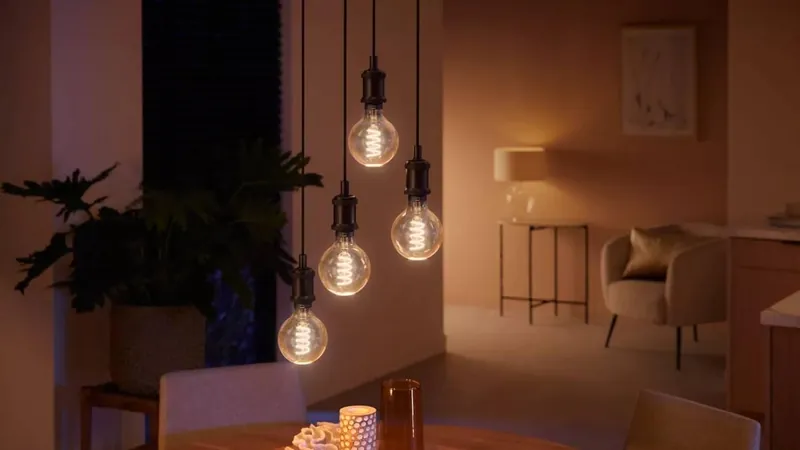
Why Your LED Lights Keep Failing: The Shocking Truth Revealed!
2025-08-25
Author: Sophie
LED lights have revolutionized home lighting with their energy-saving features and long lifespan promises. However, many users are frustrated to find these lights burning out far sooner than the advertised lifespan. If you've experienced this, you're not alone! Fortunately, experts have identified several key reasons why your LEDs might not be living up to expectations.
The Reality Behind LED Lifespan Ratings
First things first: those lifespan ratings on the packaging are more like estimates than guarantees. When manufacturers claim their bulbs will last between five to ten years, it's based on internal tests. It doesn’t account for real-world conditions, which can vary drastically. Many users tend to remember the bulbs that flicker out early rather than the ones that shine brightly for years.
Heat: The Silent Killer of LED Lights
Heat is a major enemy of LED longevity. Most LED bulbs are equipped with sensitive electronic components that degrade quickly in high temperatures. If installed in poorly ventilated fixtures or hot corners of your home, you’re likely to see them fail prematurely. To enhance durability, opt for bulbs with sturdy aluminum heat sinks.
Is Your Electrical Supply 'Clean'? It Matters!
Not all electricity is created equal. 'Dirty' power, characterized by spikes and fluctuations, can wear down your LED bulbs much faster. If you're frequently replacing bulbs without obvious cause, consider checking the integrity of your electrical supply.
The Importance of Proper Installation
Issues such as old or poorly installed sockets can mimic problems associated with dirty power. Sockets that are worn or dirty won’t transfer electricity effectively, leading to early burnout. Make sure to install your bulbs securely but without over-tightening for optimal performance.
Humidity: A Hidden Threat
High humidity levels can exacerbate the heating problems for LEDs, especially in damp climates. If you live in an area with significant moisture in the air, consider using a dehumidifier to extend the life of your lights.
Dimming Devices: Are They Compatible?
Just because an LED is dimmable doesn’t mean it plays well with older dimmer switches, which were designed for incandescent bulbs. If your dimmer isn't matched with the LED technology, you could face serious burnout issues. Consider upgrading to LED-compatible dimmers or opting for smart bulbs that you can control with an app.
Quality Control Matters!
Finally, not all LED bulbs are created equal. Some manufacturers skimp on crucial components, such as drivers and converters, resulting in early failures. Stick to reputable brands like Philips, Govee, or Cree for your LED needs, as they often offer better quality and longevity.
In conclusion, while LEDs are generally a great investment for modern lighting, several factors can impact their lifespan. By being aware of these elements, you can take steps to ensure your LEDs shine bright for years to come! For more tips on finding the best LED bulbs for your home, check out our guides tailored for every room.









 Brasil (PT)
Brasil (PT)
 Canada (EN)
Canada (EN)
 Chile (ES)
Chile (ES)
 Česko (CS)
Česko (CS)
 대한민국 (KO)
대한민국 (KO)
 España (ES)
España (ES)
 France (FR)
France (FR)
 Hong Kong (EN)
Hong Kong (EN)
 Italia (IT)
Italia (IT)
 日本 (JA)
日本 (JA)
 Magyarország (HU)
Magyarország (HU)
 Norge (NO)
Norge (NO)
 Polska (PL)
Polska (PL)
 Schweiz (DE)
Schweiz (DE)
 Singapore (EN)
Singapore (EN)
 Sverige (SV)
Sverige (SV)
 Suomi (FI)
Suomi (FI)
 Türkiye (TR)
Türkiye (TR)
 الإمارات العربية المتحدة (AR)
الإمارات العربية المتحدة (AR)